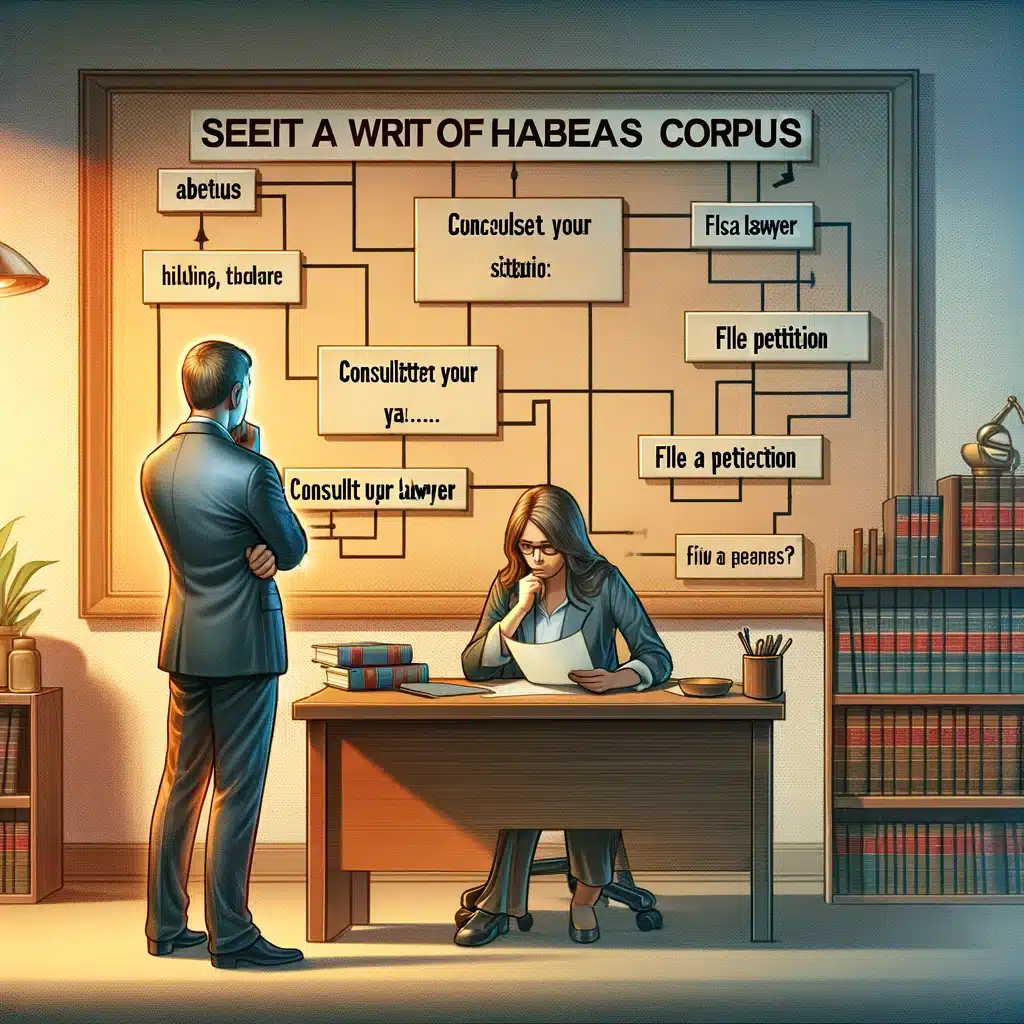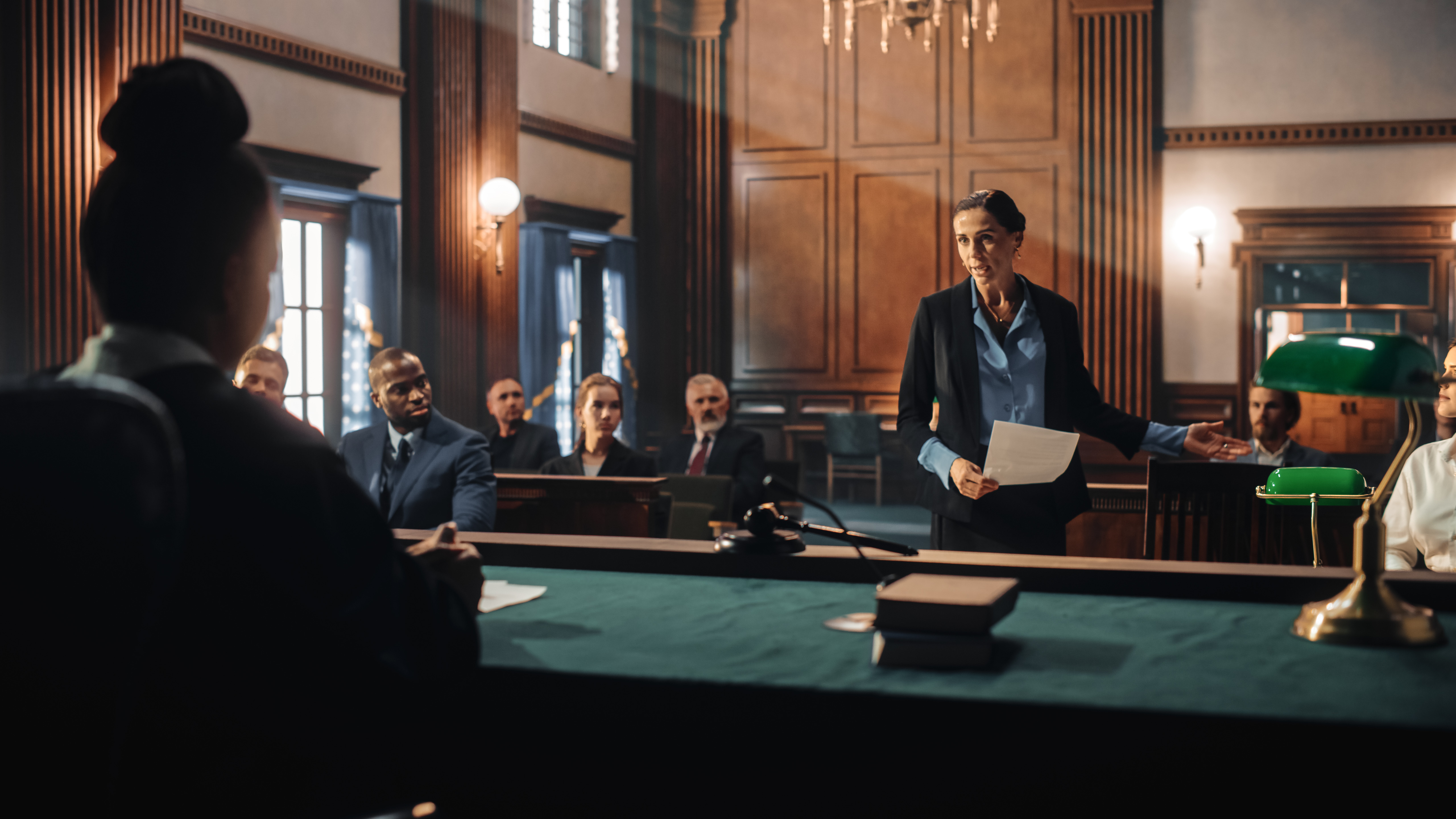Why You Required a Lawyer for Your Habeas Corpus Situation
Why You Required a Lawyer for Your Habeas Corpus Situation
Blog Article
Understanding the Duty of a Post-Conviction Legal Representative in Seeking Justice After a Criminal Sentence
In the facility landscape of post-conviction legal process, the role of a post-conviction legal representative is essential in navigating the path to justice after a criminal sentence. Beyond the boundaries of a trial, these legal professionals involve in a diverse technique focused on revealing new proof, challenging legal errors, and supporting for their customers' civil liberties. The intricacies of post-conviction job call for a blend of lawful acumen, investigative skills, and calculated believing to unravel the intricacies of a situation and seek avenues that might have been forgotten or underexplored. As the pursuit of justice extends beyond the boundaries of preliminary proceedings, the function of a post-conviction legal representative emerges as a beacon of wish for those seeking to rectify injustices and redeem their civil liberties within the legal system.
Post-Conviction Lawyer's Investigative Job
Post-conviction legal representatives participate in careful investigatory job to discover new evidence, procedural mistakes, or transgression that can potentially cause reversing a sentence. This investigatory phase is crucial in the post-conviction procedure as it intends to recognize any type of ignored information or legal bad moves that might have influenced the end result of the first trial. Post-conviction attorneys look into instance files, witness testaments, and legal documents with a fine-tooth comb, looking for any type of inconsistencies or irregularities that could be grounds for charm.
Through complete examination, post-conviction legal representatives aim to shed light on potential injustices that might have taken place during the initial test. By looking at every element of the legal process, post-conviction lawyers function relentlessly to discover any aspects that may have influenced the decision.
Crafting Appeals and Petitions
In the search of justice after a sentence, proficient attorneys thoroughly craft appeals and petitions to present compelling debates for the reconsideration of lawful decisions. Crafting allures and petitions needs a deep understanding of the lawful system, focus to detail, and calculated thinking. Post-conviction legal representatives analyze trial documents, recognize possible errors or infractions of legal rights, and develop legal debates to challenge the conviction or sentence.
When crafting an appeal, attorneys concentrate on highlighting legal errors that may have impacted the outcome of the situation. They look into instance legislation, laws, and legal criteria to sustain their disagreements. Petitions, on the various other hand, might include offering new evidence that was not readily available during the test or demonstrating modifications in the law that require a review of the conviction.
Moreover, post-conviction attorneys must stick to strict step-by-step rules and deadlines when filing allures and applications. They should present their disagreements clearly and persuasively to persuade the court to provide alleviation to their clients. With careful crafting of appeals and petitions, post-conviction lawyers make every effort to safeguard justice for individuals that have been wrongfully convicted or unjustly punished.

Going After Post-Conviction Alleviation
Looking for relief after a conviction calls for a critical and persistent strategy by skilled attorneys. Post-conviction alleviation includes a variety of legal systems developed to test the credibility of a sentence or sentence (top hawaii federal lawyers). These avenues include submitting motions for a new trial, pursuing allures, looking for writs of habeas corpus, and offering newly uncovered proof. Post-conviction legal representatives play a vital duty in navigating these intricate procedures, guaranteeing that all lawful alternatives are discovered to rectify oppressions that may have taken place during the test or sentencing stage.
One usual kind of post-conviction alleviation is submitting an application for post-conviction alleviation, usually based upon claims of inefficient assistance of guidance, prosecutorial misbehavior, freshly discovered evidence, or constitutional infractions. These petitions need a detailed evaluation of the test record, legal study, and persuasive campaigning for to persuade the court to approve relief. Experienced post-conviction lawyers have the skills and understanding essential to determine feasible legal claims, perform examinations, and existing engaging debates to secure relief for their customers. By diligently pursuing post-conviction alleviation, these attorneys make every effort to deal with miscarriages of justice and support the principles of justness and due process in the criminal justice system (Attorney).
Making Use Of Forensic Proof
When testing a sentence or sentence, the tactical application of forensic proof can be an effective tool in post-conviction lawful procedures. Forensic evidence includes a large range of scientific techniques used to explore criminal activities and establish facts in court. Post-conviction legal representatives can utilize forensic evidence to challenge the validity of sentences by offering brand-new clinical searchings for that were not available throughout the initial test.

Participating In Sentence Modifications
Post-conviction lawyers may check out the possibility of sentence modifications as a legal method to address out of proportion or unjust sentences passed on in criminal cases. Sentence modifications include seeking changes to the regards to an offender's sentence after a conviction has taken place. These alterations can include reducing the size of a sentence, altering the type of punishment enforced, or exploring different sentencing alternatives.
Post-conviction attorneys can go after sentence adjustments with numerous legal systems, such as filing motions for sentence reduction, appealing for caring release, or negotiating plea offers for lowered sentences. They have to carefully evaluate the conditions of the case, analyze the lawful grounds for seeking a modification, and existing compelling arguments to the court sustaining the need for a revised sentence.
Taking part in sentence adjustments requires an extensive understanding of criminal legislation, sentencing standards, and the specific treatments entailed in looking for post-conviction alleviation. Post-conviction attorneys play a vital function in supporting for fair and just results by challenging sentences that are unduly rough or do not line up with the principles of justice.
Conclusion
Finally, the duty of a post-conviction lawyer is essential in seeking justice after a criminal sentence. Via investigatory work, crafting appeals and petitions, pursuing post-conviction alleviation, utilizing forensic proof, and engaging in sentence alterations, these lawyers play a vital function in promoting for their clients and making sure that their rights are promoted within the criminal justice system. Their commitment and competence are necessary in navigating have a peek here the complexities of post-conviction process and accomplishing a reasonable outcome for people dealing with criminal sentences.
Report this page